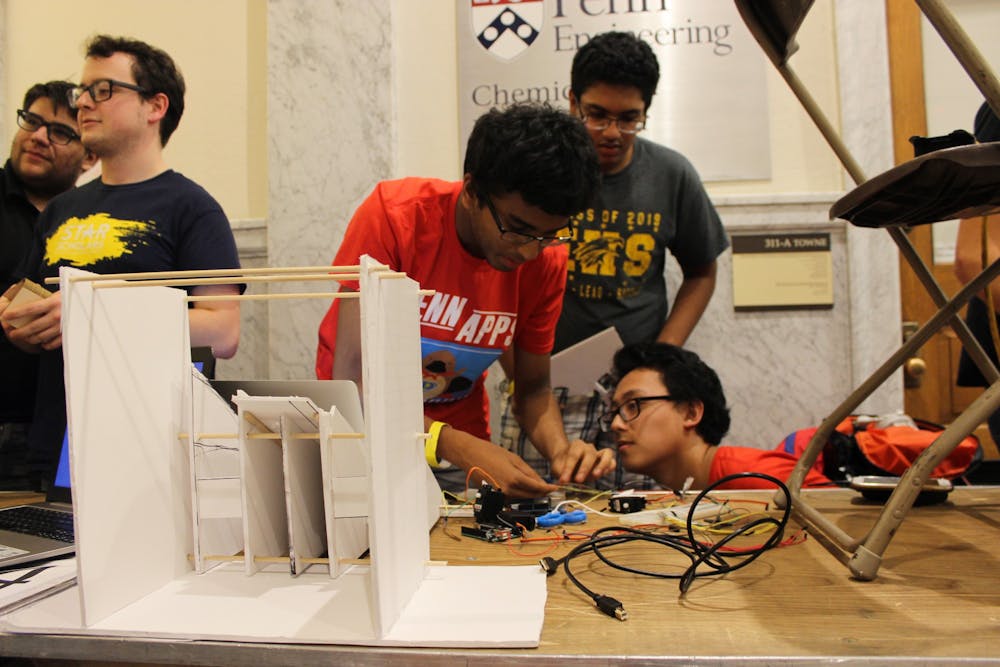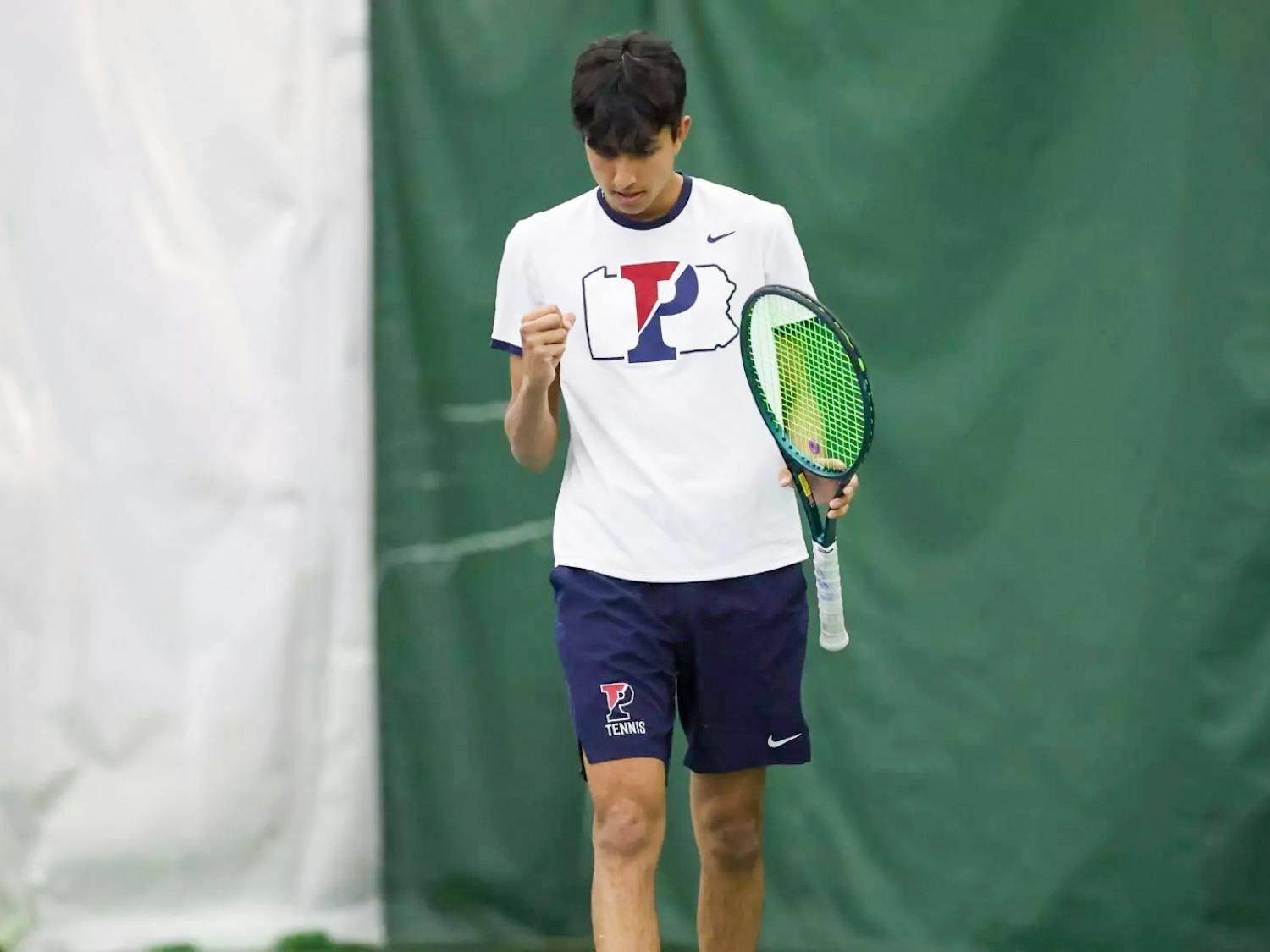Popular annual hackathon PennApps will not host its annual spring competition. Instead, PennApps will hold a smaller workshop for amateur engineering projects and a startup incubator.
Director of PennApps and College junior Claudia Haddad said the group decided to try something new this semester to bring the PennApps experience to a younger, more entry-level audience. The group has not yet finalized an exact date and location for the events, but the events will take place this semester. The day-long workshop will be open to undergraduates and high school students across the nation, while the startup incubator is only for Penn undergraduates and graduates, according to Haddad.
“We thought it would be beneficial to really open opportunities for people who are beginners who might be intimidated by the traditional PennApps,” Haddad said.
Founded in 2009, PennApps has hosted competitive hackathons twice a year that attract hundreds of students from universities and high schools across the country. Last spring, PennApps hosted a more intimate, advanced hackathon for only 300 people – a quarter of the usual size of the fall hackathon that takes place every year, Haddad said.
“Our spring event is really a time to experiment, try something new, and appeal to new audiences,” Haddad said.

Students hope more resources will now be put into the Fall hackathon.
Engineering and Wharton sophomore Robert Zhang, who attended the PennApps hackathon in 2018, said students often felt deterred to attend the hackathon, citing anxiety and feelings of inferiority.
“I think that one of the biggest stoppers for people who want to go to hackathons is this imposter syndrome and there are so many really good engineers at Penn [who say] 'I don't feel like I'm good enough so I don't want to go'," Zhang said.
RELATED:
Philadelphia ranked third best city for women in tech
Philadelphia is eighth best city for startups, Forbes reports
Engineering and Wharton sophomore Christopher Lee also attended the 2018 fall hackathon and worked on a project with Zhang that project won best healthcare hack. Lee and Zhang's winning project is a pill bottle that only dispenses medication according to the doctor's prescribed schedule. Lee and Zhang, who have also attended PennApps 2019 spring hackathon, said they had more fun at the larger event in the fall.
“I think that if they were to focus on one event and really make that one the best that they can make it, I think that’s always a good thing,” Lee said.
Haddad added she hopes the group can dedicate more resources to the fall hackathon by hosting smaller Spring events as they plan to do this semester.
“The fall event is always going to be like our main thing and it's going to be like our flagship event that we really put all our effort and resources towards,” Haddad said.

(Left to right) Christopher Lee, Robert Zhang, Anish Neervannan, and Srisa Changolkar won the best healthcare hack award during the 2018 Fall hackathon. (Photo from Christopher Lee)
High school senior Arya Kumar, who attends Thomas Jefferson High School for Science and Technology in Virginia, attended PennApps in Fall 2019 and was surprised to hear that the usual PennApps spring hackathon would not take place, but that he plans to return in the fall. Kumar said he enjoyed PennApps and felt the event was well-planned and more diverse than other hackathons he has attended.
“[At PennApps], I noticed that the ratio of girls to guys was substantially better than other hackathons,” Kumar said. “It felt a lot more like a college experience than a bunch of nerdy guys working on a project.”
High school sophomores Havish Netla and Jeffrey Yang, who attend Marriotts Ridge High School in Maryland, attended PennApps in fall 2019. They said they were disappointed that they could not participate in the spring hackathon but look forward to attending in fall 2020.
At last semester's PennApps, Yang and Netla developed software that helps the blind or visually impaired see using sound.
“It will play the sound from the direction of where the objects are, in a readout of the objects, so it allows you to see the world,” Yang said.
Haddad said that PennApps has a responsibility to keep developing new ideas for their events, especially as the nation's first student-run hackathon.
“Hackathons are constantly evolving, and being the first hackathon, we often set the precedent for what the standard is, like what the future holds,” she said.









